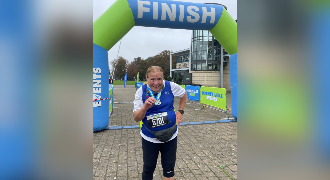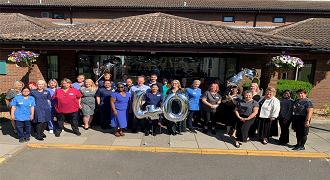Spire Gatwick Park Hospital patient completes 135 marathons since knee replacement surgery
26 March 2025
Spire Gatwick Park Hospital’s former patient, Kate, aged 65, initially booked a consultation with Mr George Tselentakis, Consultant Orthopaedic Surgeon, for treatment of severe osteoarthritis of her left knee which was causing increased difficulty with mobility. These issues were restricting Kate’s basic daily activities as well as causing her to stay at home more, isolating her from her family.







